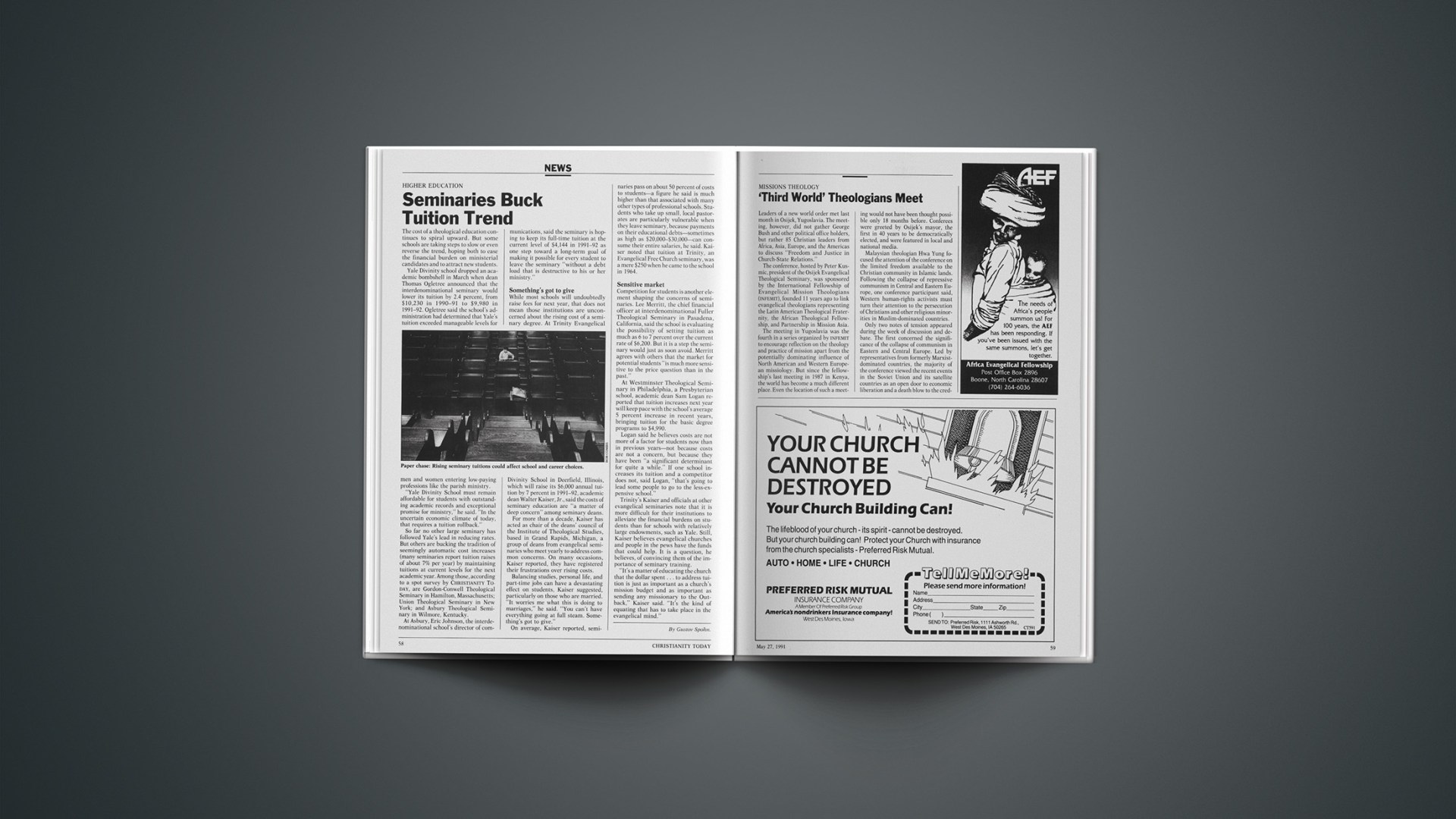Leaders of a new world order met last month in Osijek, Yugoslavia. The meeting, however, did not gather George Bush and other political office holders, but rather 85 Christian leaders from Africa, Asia, Europe, and the Americas to discuss “Freedom and Justice in Church-State Relations.”
The conference, hosted by Peter Kusmic, president of the Osijek Evangelical Theological Seminary, was sponsored by the International Fellowship of Evangelical Mission Theologians (INFEMIT), founded 11 years ago to link evangelical theologians representing the Latin American Theological Fraternity, the African Theological Fellowship, and Partnership in Mission Asia.
The meeting in Yugoslavia was the fourth in a series organized by INFEMIT to encourage reflection on the theology and practice of mission apart from the potentially dominating influence of North American and Western European missiology. But since the fellowship’s last meeting in 1987 in Kenya, the world has become a much different place. Even the location of such a meeting would not have been thought possible only 18 months before. Conferees were greeted by Osijek’s mayor, the first in 40 years to be democratically elected, and were featured in local and national media.
Malaysian theologian Hwa Yung focused the attention of the conference on the limited freedom available to the Christian community in Islamic lands. Following the collapse of repressive communism in Central and Eastern Europe, one conference participant said, Western human-rights activists must turn their attention to the persecution of Christians and other religious minorities in Muslim-dominated countries.
Only two notes of tension appeared during the week of discussion and debate. The first concerned the significance of the collapse of communism in Eastern and Central Europe. Led by representatives from formerly Marxist-dominated countries, the majority of the conference viewed the recent events in the Soviet Union and its satellite countries as an open door to economic liberation and a death blow to the credibility of the Marxist interpretation.
Latin American delegates, however, indicated continued attraction to Marx’s social analysis and critique of capitalism. They fought in discussions to tone down any sweeping denunciation of Marxism and to references to “the negative social consequences of capitalism” in any conference statement.
Discord also occurred over the question of whether the African, Asian, and Latin American theological fellowships should encourage fraternal relations with their North American and European counterparts. Again the Latin American delegates stood apart from the majority, arguing that First World evangelical leaders not be included as members of INFEMIT, except as individuals by special invitation. Such involvement as equal partners, it was argued, would quickly lead to the dominance of North American and European perspectives and the inhibition of independent evangelical thinking representing Third World Christians.
In spite of such differences, delegates summarized their conclusions in an eight-page Declaration on Freedom and Justice in Church-State Relations, to be known as the Osijek Declaration. In the document, conferees evaluated the significance of the recent historical events in the life of their churches and nations, the role of religion in the shaping of national identities, the need to clarify the existence of free churches within free societies, and the ways in which Christians from different traditions and national backgrounds can cooperate to help fellow believers suffering from discrimination and persecution.










